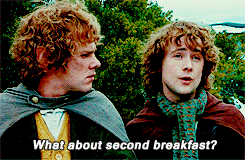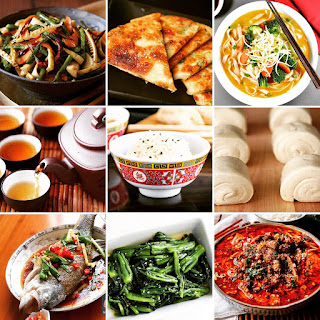 |
| www.KarissaLaurel.com |
Fellow ATB contributor, Mary Fan, and I often participate in
a mostly Young Adult, Twitter trend called
#ThursdayAesthetic hosted by writer, Jessica James. Every week she
chooses a theme, and those who participate (usually other writers) design an
aesthetic meme to illustrate how that subject appears in their book or
current Work in Progress. Last week, Jessica chose “sustenance” as the theme
and left the interpretation up to each participant.
Not surprisingly, many of us chose to show how food appears in our books.
For example, here’s the aesthetic meme Mary designed for her upcoming YA fantasy STRONGER THAN A BRONZE DRAGON, illustrating what her main character would eat in her East Asia inspired world.
Following Mary’s lead, I designed a food aesthetic for my
upcoming YA fantasy, Crown of Thunder (Stormbourne
Chronicles Book 3). As a former cook and caterer, I strongly relate to the
world through food, and that often bleeds into my world-building. Food is so
much a part of the culture of a person and place.
In choosing the dishes Evie would eat, I did quite a bit of research into what foods were available in her current locale. Evie’s world is fantasy, but it’s not-so-loosely-based on Europe, and I wanted her location reflected not just in language, attire, customs, and religion, but also in the meals she ate. I also considered what she might eat when she had plenty of money versus what would she could eat when her pockets were mostly empty.
Putting together the picture aesthetic for the Twitter theme got me thinking a lot about how much food is an important tool in effective world-building. Alice's tea party. Snow White's poisoned apple. Pistachios, figs, almonds, and quince chutney in The Wrath and the Dawn. Honey Cakes in The Bear and the Nightingale. Who are Middle Earth's Hobbits without their insatiable appetites?

What would Harry Potter's world be without Hogwarts's massive magical feasts,chocolate frogs, butter beer, and Bertie Bott's Every Flavor Beans? Katniss in The Hunger Games goes from hunting for wild game to keep from starving to eating feasts aboard the train to the Capital. Remember the blue milk in Star Wars? That small element immediately signaled how Luke Skywalker's diet, and therefore his world, was alien from our own. Urban Fantasy author Hailey Edwards writes a series (The Beginner's Guide to Necromancy) with a main character obsessed with churros--it's a small detail, but one that makes Grier seem more real. In my upcoming paranormal romance, Touch of Smoke, my main character lives in a small mountain town in the South, and her diet of biscuits, sweet tea, and pimento cheese reflects her culture.
Food in books is often like background noise--easy to ignore, but getting it wrong adds a dissonant note to what should be a melodic song. Sometimes, though, we're not aware of when we're getting it wrong nor the harm that comes from it. I'd never considered how much weight such a seemingly inconsequential thing like food could have in a story until I read a blog post by Franco-Vietnamese author, Aliette De Bodard. In her post, WE ARE NOT FICTIONAL: ON DEFAULT ASSUMPTIONS AND WORLDBUILDING, de Bodard decries the many ways in which non-Western cultures are erased in media, including in their food.
Food in books is often like background noise--easy to ignore, but getting it wrong adds a dissonant note to what should be a melodic song. Sometimes, though, we're not aware of when we're getting it wrong nor the harm that comes from it. I'd never considered how much weight such a seemingly inconsequential thing like food could have in a story until I read a blog post by Franco-Vietnamese author, Aliette De Bodard. In her post, WE ARE NOT FICTIONAL: ON DEFAULT ASSUMPTIONS AND WORLDBUILDING, de Bodard decries the many ways in which non-Western cultures are erased in media, including in their food.
"It’s exhausting to see, again and again, assumptions that the entire world must follow Western Anglophone norms; that every language must behave like English [1], that every food stuff must be US/UK; that every single culture has the same gender demarcations and boundaries as the Western Anglophone world–that, if you don’t follow these norms, you’re weird. That you’re other, alien, forever not welcome...
Sometimes food is merely a simple innocent detail, but sometimes it conveys a subliminal message. Depending on the setting of a story, things like spices, grains, and other crops were closely intertwined with slave labor and colonialism. Some foods are taboo in certain cultures or carry special religious implications. Using food carefully can enhance and enrich a fantasy culture. Thoughtless applications cuisine can offend, hurt, and erase identities.
For another great resource of food in fantasy world-building, I highly advise checking out: Thinking about Food in Fantasy, a comprehensive blog post that that examines potential pitfalls of food as an element of world-building.
I hope that there's at least one place in heaven that looks like Willy Wonka's chocolate waterfall room--that would be an ultimate fantasy fulfillment. What are some of your favorite foods from literature or meals from books that linger fondly in your memory?
Sometimes food is merely a simple innocent detail, but sometimes it conveys a subliminal message. Depending on the setting of a story, things like spices, grains, and other crops were closely intertwined with slave labor and colonialism. Some foods are taboo in certain cultures or carry special religious implications. Using food carefully can enhance and enrich a fantasy culture. Thoughtless applications cuisine can offend, hurt, and erase identities.
For another great resource of food in fantasy world-building, I highly advise checking out: Thinking about Food in Fantasy, a comprehensive blog post that that examines potential pitfalls of food as an element of world-building.
I hope that there's at least one place in heaven that looks like Willy Wonka's chocolate waterfall room--that would be an ultimate fantasy fulfillment. What are some of your favorite foods from literature or meals from books that linger fondly in your memory?



6 comments:
Great post, Karissa!! And now I'm hungry hahaha... but it's true! Food is *such* an integral part of worldbuilding and it's so easy to overlook... I wish I'd included more mentions...
I had never really taken much thought about the food being eaten or begged for in fantasy or any genre. However stopping to think about it, it is a big part of putting realism into a world and character. For example if your character was travelling the plains of India, if the author wrote “ Adam & Sara decided to have There illicit meetings in the local fish & chip shop, as a reader you would think. What ! ! If they had been meeting in a fish & chip shop in the UK, you wouldn’t bat an eyelid as that adds credence to the world that was built. But in India? Not so much. I think It would make me loose faith in the author creating an unrealistic scene ( I do not know if India has fish & chip shops, so don’t beat me down for it, I’m only using it as an example) I believe I will be noticing it more now in future reads.
I bet now you'll notice food in every book you read. I read a book once where in the foreword the author said that as a kid, he always wanted to eat whatever the characters were eating in the book he was reading because he wanted to experience it. After thinking about food so much, I'm half inspired to try writing a cookbook with recipes from meals described in books.
Anlei was too busy kicking butt to worry about what she was eating.
I totally agree! Food is the subliminal focus in much successfl fiction as if a secondary character. Julie and Julia comes to mind, one of my favorite novels/movies, especially since one of the main characters is a blogger! Great post Karissa and one I’ll put more thought into the flavors of my writing.
Useful info. Hope to see more good posts in the future.
rice suppliers in usa
Post a Comment